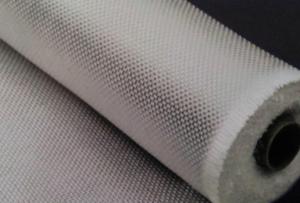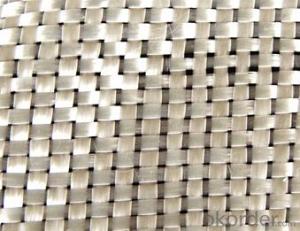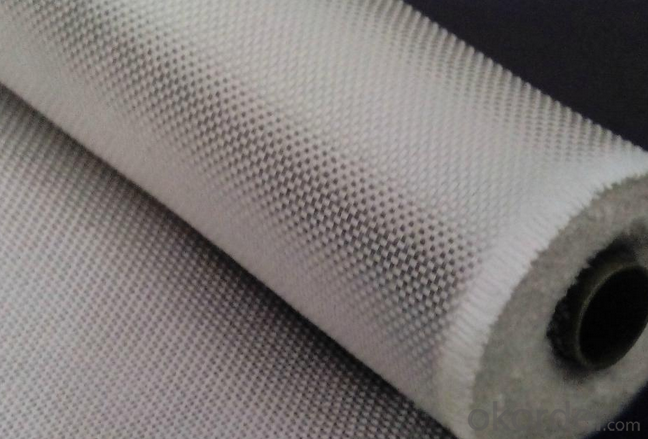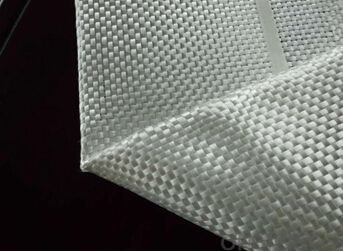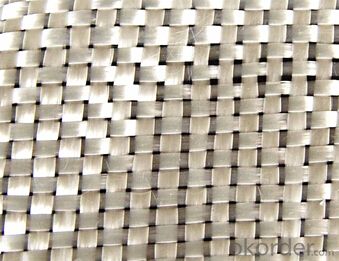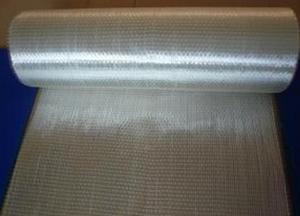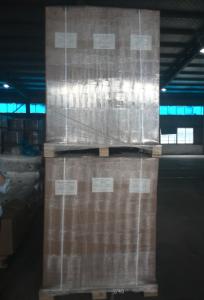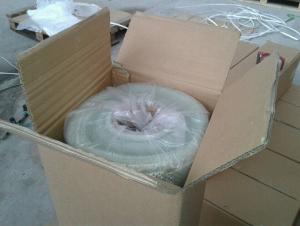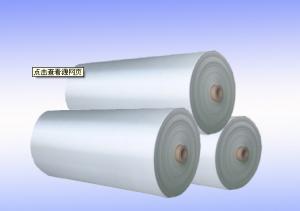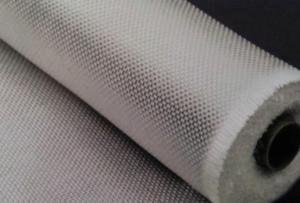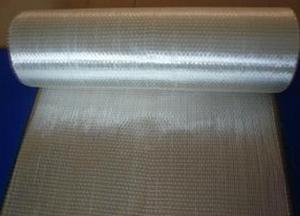Fiberglass Mat Tissue - E-Glass Fiberglass Woven Roving 400gsm-1000mm
- Loading Port:
- Shanghai
- Payment Terms:
- TT or LC
- Min Order Qty:
- 5000 kg
- Supply Capability:
- 300000 kg/month
OKorder Service Pledge
OKorder Financial Service
You Might Also Like
Structure of woven roving Description
Glass woven rovings are bidirectional fabric by direct rovings in plain weave pattern. They are applicable for hand lay-up, winding and compress molding process, suitable for manufacturing tank, boat, automobile parts and other FRP products.
1,high strenth,corosion and resistence
2,consistent thickness,no fuzz
3,rapid impregnating
Main Features of the woven roving
1)Drapes well to suit the surface of intricate moulds
2)Fast wet-through and wet out
3)Easy handing and better appearance of the composite parts
4)Compatible with Unsaturated polyester resin
5)Very high laminate strength properties
Woven roving Images
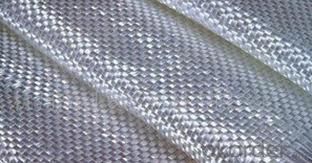
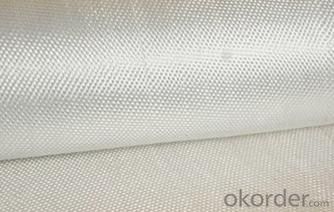
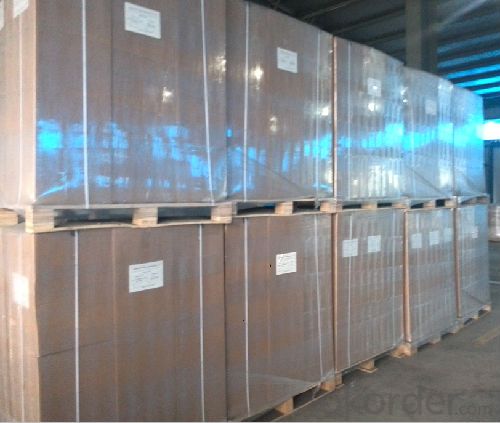
Woven roving Specification:
Normal type | EWR800 | EWR400 | EWR300 | EWR500 | EWR600 |
Thickness (mm) | 0.8 | 0.4 | 0.3 | 0.5 | 0.6 |
Density(warpxweft) (end/cm) | 1.8x1.5+/-10% | 3.6x3.2+/-10% | 4.6x4.1+/-10% | 2.2X2.0+/-10% | 2.6X2.4+/-10% |
Tex (warpxweft) | 2400x2400 | 600X600 | 300x400 | 1200x1200 | 1200X1200 |
Moisture content(%) | <0.2% | <0.2% | <0.2% | <0.2% | <0.2% |
Loss on ignition(%) | 0.4 – 0.8 | 0.4-0.8 | 0.4-0.8 | 0.4-08 | 0.4-0.8 |
Width(cm) | 125+/-1 | 125+/-1 | 125+/-1 | 125+/-1 | 125+/-1 |
Weight (g/m2) | 816+/-41 | 408+/-32 | 300+/-15 | 500+/-25 | 600+/-30 |
Weight per roll(kg) | 45 | 46 | 50 | 45 | 45 |
Glass | E-glass | E-glass | E-glass | E-glass | E-glass |
FAQ of woven roving:
Delivery Detail: 15-21days
Other spec. can be custom made as per customer's request.
Application of Fiberglass Woven Roving:
a) boats ,vessels ,plane
b) automotive parts ,furniture and sports facilities
c) resins system,such as polyeser,vinylester and epoxy resins
- Q: Is fiberglass mat tissue fire-resistant?
- Fiberglass mat tissue is not naturally fire-resistant, contrary to popular belief. Although fiberglass itself is non-combustible, manufacturers usually mix the mat tissue with a flammable binder or resin. Nevertheless, there are specialized fiberglass mat tissue options that have undergone treatment with fire-resistant coatings or additives. These treated materials offer enhanced fire resistance properties and are frequently utilized in construction and insulation materials that prioritize fire safety. It is crucial to carefully examine the product specifications or seek advice from the manufacturer to ascertain the fire resistance capabilities of a specific fiberglass mat tissue.
- Q: Can fiberglass mat tissue be used for reinforcing fiberglass boats?
- Reinforcing fiberglass boats is possible with the utilization of fiberglass mat tissue. This material, composed of randomly arranged fiberglass strands held together by a binder, is lightweight, flexible, and easy to work with, making it an excellent choice for this purpose. To create a strong and durable composite material, fiberglass mat tissue is typically combined with fiberglass resin in boat construction. The mat tissue is laid down and infused with resin, which then undergoes curing and hardening to establish a rigid structure. This process effectively enhances the boat's strength, stiffness, and resistance to impact. Fiberglass mat tissue is commonly applied in areas of the boat that require additional reinforcement, such as the hull, deck, or other high-stress regions. By distributing and absorbing forces, it reduces the likelihood of cracking or failure. Moreover, it provides additional protection against impacts and abrasions, thereby extending the lifespan of the boat. Nevertheless, it is important to recognize that fiberglass mat tissue alone may not suffice for reinforcing fiberglass boats. It is often utilized in combination with other reinforcement materials, like fiberglass cloth or woven roving, to create a well-balanced and optimized reinforcement system. Ultimately, the utilization of fiberglass mat tissue for reinforcing fiberglass boats significantly enhances their structural integrity and durability. It is a versatile and cost-effective option that is widely employed in the boat building industry.
- Q: Does fiberglass mat tissue require any special precautions during storage?
- Yes, fiberglass mat tissue does require some special precautions during storage. Fiberglass is a delicate material and can be easily damaged if not stored properly. Here are some precautions to consider: 1. Keep it dry: Fiberglass mat tissue should be stored in a dry and moisture-free environment. Moisture can cause the material to lose its strength and integrity. 2. Avoid direct sunlight: UV rays from sunlight can degrade fiberglass over time. Store the material in a cool, shaded area away from direct sunlight to prevent any damage. 3. Protect from dust and dirt: Fiberglass mat tissue should be stored in a clean and dust-free environment. Dust and dirt particles can get embedded in the material, making it less effective. 4. Avoid extreme temperatures: Extreme heat or cold can also affect the quality of fiberglass mat tissue. It is best to store it in a temperature-controlled environment to prevent any damage. 5. Use proper packaging: If the fiberglass mat tissue comes with packaging, it is recommended to keep it in its original packaging to provide an additional layer of protection. If not, consider using a durable and moisture-resistant wrapping material. By following these precautions, you can ensure that your fiberglass mat tissue remains in good condition during storage and is ready for use when needed.
- Q: Is fiberglass mat tissue suitable for high-temperature applications?
- High-temperature applications are not suitable for fiberglass mat tissue. This type of tissue is usually composed of thin glass fibers interwoven to form a non-woven fabric. Although fiberglass is renowned for its robustness and endurance, it possesses a low melting point, rendering it unsuitable for withstanding high temperatures. Exposing fiberglass mat tissue to elevated temperatures may result in its melting or deterioration, leading to weakened structure and possible malfunction. Consequently, it is crucial to opt for alternative materials explicitly designed for high-temperature applications, such as ceramic or silicone-based products.
- Q: Does fiberglass mat tissue provide any moisture insulation?
- Yes, fiberglass mat tissue provides some level of moisture insulation. Fiberglass is known for its water-resistant properties, and the mat tissue made from fiberglass helps to further enhance this characteristic. It acts as a barrier against moisture, preventing it from seeping through and causing damage to underlying materials. However, it is important to note that fiberglass mat tissue is not completely waterproof and may allow some moisture to penetrate over time. Therefore, it is recommended to use additional moisture insulation materials in situations where complete waterproofing is required.
- Q: Is fiberglass mat tissue suitable for insulation in educational facilities?
- Yes, fiberglass mat tissue is suitable for insulation in educational facilities. It offers excellent thermal insulation properties, is easy to install, and provides effective soundproofing. Additionally, it is fire-resistant, durable, and cost-effective, making it a practical choice for educational buildings.
- Q: Can fiberglass mat tissue be used for electrical insulation?
- Yes, fiberglass mat tissue can be used for electrical insulation. Fiberglass mat tissue is a non-woven fabric made from fine glass fibers, and it has excellent electrical insulation properties. It is capable of withstanding high temperatures and has a high dielectric strength, making it suitable for various electrical applications. It is commonly used as an insulation material in electrical transformers, motors, generators, and other electrical equipment. The fiberglass mat tissue provides a barrier that prevents the flow of electrical current and protects the components from electrical shocks or short circuits. Additionally, it is also resistant to moisture, chemicals, and UV radiation, further enhancing its suitability for electrical insulation.
- Q: How does the fiber orientation of fiberglass mat tissue affect its strength?
- The fiber orientation of fiberglass mat tissue greatly affects its strength. When the fibers are aligned in a specific direction, they provide maximum strength in that direction. However, if the fibers are randomly oriented, the overall strength of the material is reduced as the load may not be evenly distributed among the fibers. Therefore, proper fiber orientation is crucial in maximizing the strength of fiberglass mat tissue.
- Q: Can fiberglass mat tissue be used in corrosive environments?
- No, fiberglass mat tissue is not suitable for use in corrosive environments as it is not resistant to corrosion.
- Q: Is fiberglass mat tissue resistant to mildew and rot?
- Indeed, the resistance of fiberglass mat tissue to mildew and rot is undeniable. Crafted from delicate glass fibers interlaced to form a robust and enduring substance, fiberglass stands as a paragon. Its non-porous nature prevents moisture absorption, thus endowing fiberglass mat tissue with exceptional resistance against mildew proliferation and rot-induced decomposition. Moreover, fiberglass often receives protective coatings or additives that amplify its fortitude against these biological detriments. For this reason, fiberglass mat tissue emerges as an exemplary selection in settings where humidity or moisture pose a threat, such as bathrooms, outdoor structures, or regions prone to elevated humidity levels.
Send your message to us
Fiberglass Mat Tissue - E-Glass Fiberglass Woven Roving 400gsm-1000mm
- Loading Port:
- Shanghai
- Payment Terms:
- TT or LC
- Min Order Qty:
- 5000 kg
- Supply Capability:
- 300000 kg/month
OKorder Service Pledge
OKorder Financial Service
Similar products
Hot products
Hot Searches
Related keywords
